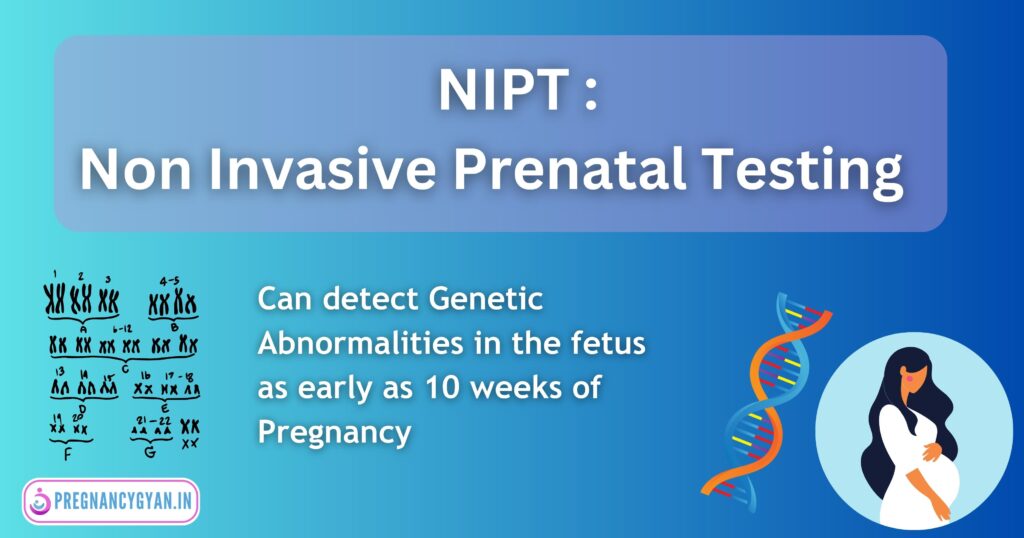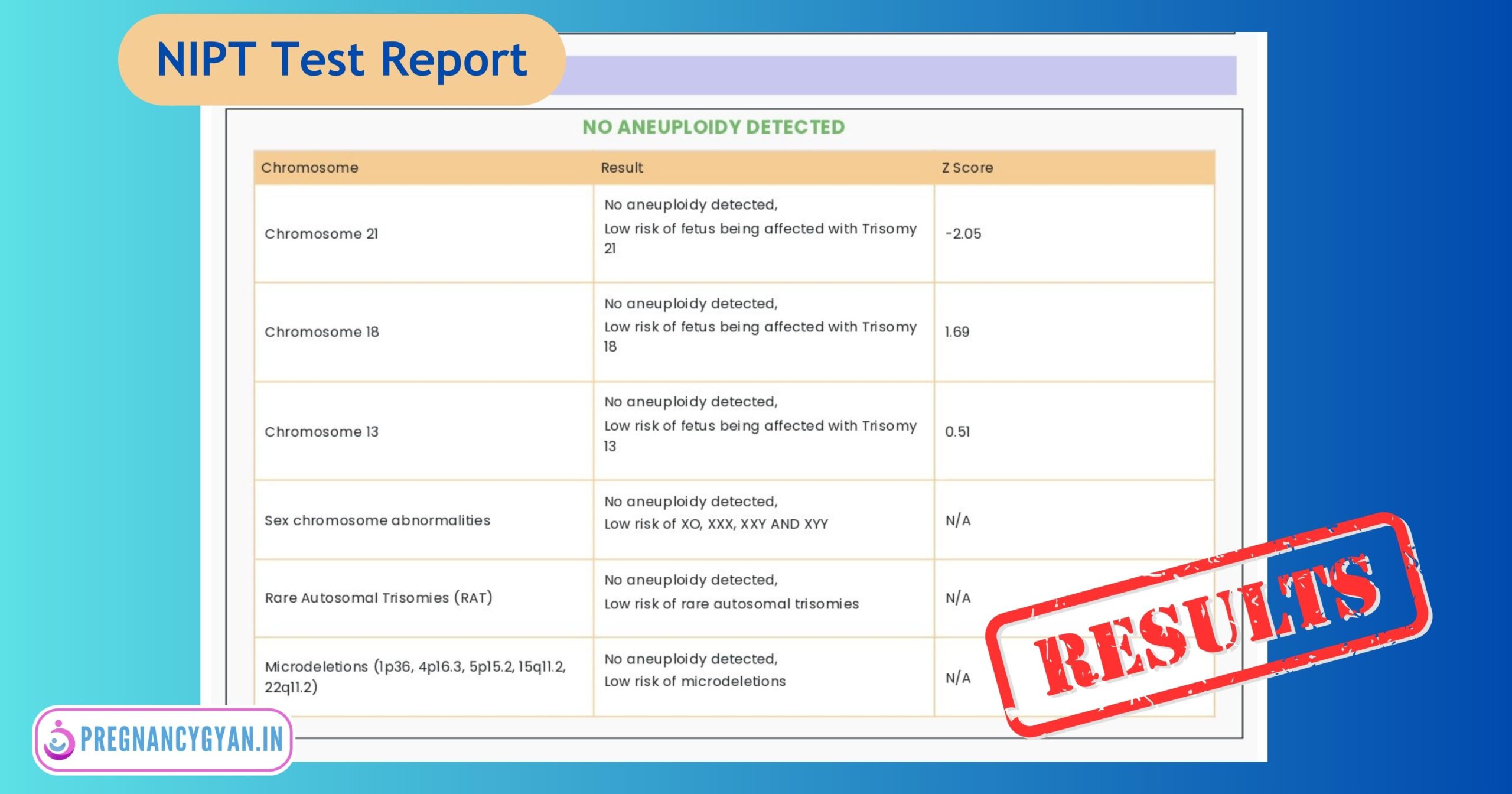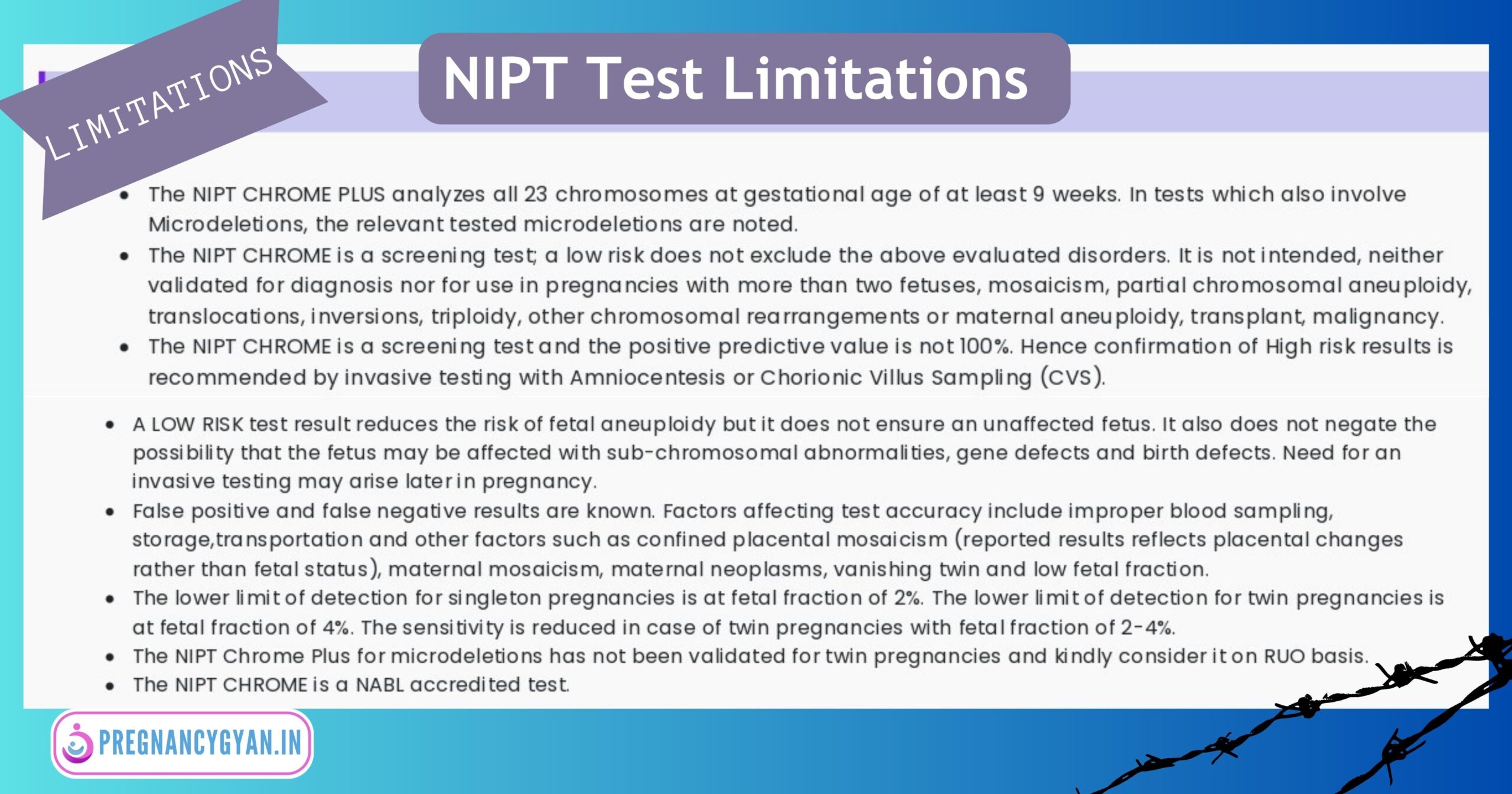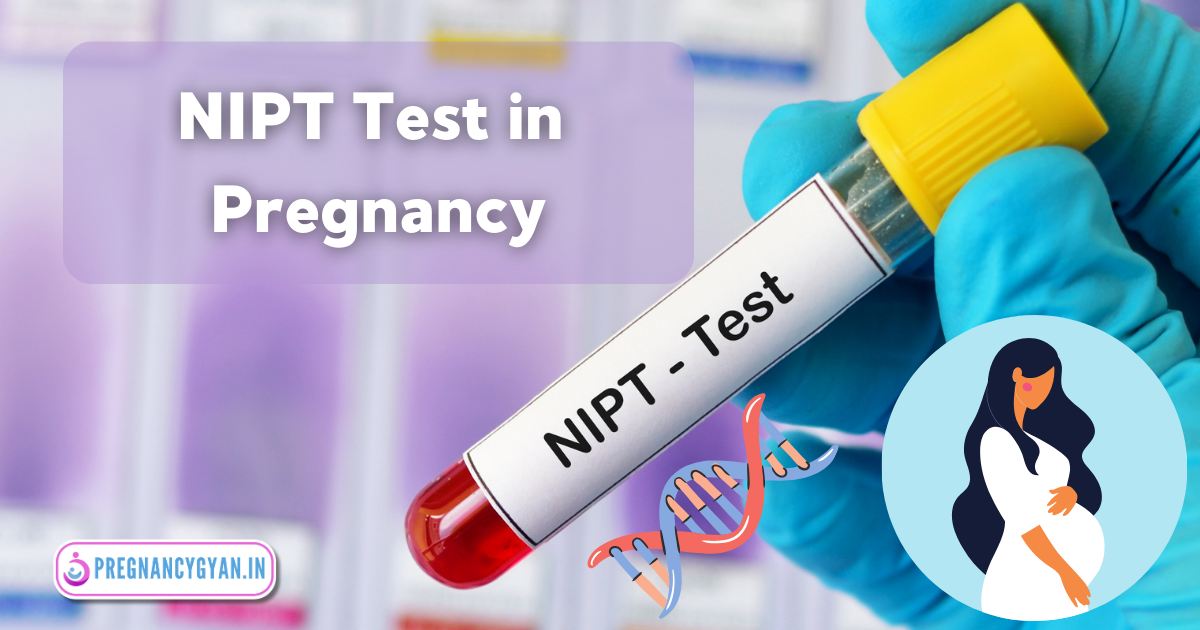इस ब्लॉग को हिन्दी मे पढ़ने के लिए यहाँ क्लिक करे।
Table of Contents
Introduction:
Pregnancy is a beautiful and exciting journey, but it also comes with some worries and uncertainties. An essential aspect of prenatal care is genetic testing, which helps identify potential risks and conditions early. Nowadays, many future mothers are advised by doctors to do the NIPT Test. In this blog post, we will take an in-depth look at the NIPT Test, exploring what it is, how it works, its benefits, and what you need to know before doing the test. .
What is NIPT Test full form ?
The full form of ‘NIPT’ is ‘Non-Invasive Prenatal Testing‘.
Non invasive – without any incisions on body
Prenatal – done before birth
Testing
What is NIPT Test?
NIPT Test in Pregnancy is a blood test which provides valuable information about the genetic health of the fetus. This test tells about the risk of the child having a genetic disease.
Unlike traditional tests like amniocentesis or chorionic villus sampling, NIPT is a non-invasive test that requires only a simple blood sample from the expectant mother. This test analyzes the traces of the baby’s DNA present in the mother’s blood, which can provide information about the risk of having certain chromosomal abnormalities and genetic disorders like Down’s syndrome or trisomy 21, Edward’s syndrome or trisomy 18, Patau syndrome or trisomy 13, etc. (Reference: National Library of Medicine)

Amniocentesis and Chorionic villus sampling are two invasive tests done to diagnose genetic disorders in the child during pregnancy.
Amniocentesis:
This test uses a needle to remove a small amount of amniotic fluid or the fluid around the womb from inside the mother’s uterus.
Chorionic Villus Sampling:
In this test, with the help of sonography, a needle is inserted into the uterus and a small sample of cells is taken from the placenta, i.e. the place that connects the baby to the mother.
How does the NIPT Test work?
During pregnancy, small amounts of the baby’s DNA naturally enter the mother’s bloodstream. The NIPT Test isolates the baby’s DNA from the mother’s blood and analyzes the baby’s DNA to provide information about the baby’s risk of having chromosomal disorders. These tests mainly focus on three chromosomal abnormalities: Down syndrome (trisomy 21), Edwards syndrome (trisomy 18), and Patau syndrome (trisomy 13). Additionally, the NIPT Test can also screen for sex chromosome abnormalities and some rare genetic disorders.
Who should do the NIPT Test in Pregnancy?
NIPT Test is usually recommended for the following pregnant women.
- The age of the pregnant woman is more than 35 years.
- The pregnant woman has a previous child with a chromosomal disorder.
- There is a previous history of genetic disorders in the pregnant woman’s family.
- Some abnormal findings have been found on ultrasound or sonography of a pregnant woman at 11 -12 weeks.
However, it is important to remember that the NIPT Test is a screening test and not a diagnostic test. This means that this test detects whether the risk of chromosomal disorder in the pregnancy is high or low. If the risk of chromosomal disorders is high, it requires further confirmation through further diagnostic testing, such as Amniocentesis or CVS. Diagnostic tests can confirm whether there is a chromosomal disorder in Pregnancy.
NIPT Test Report
The report screen of the NIPT Test is given as positive or negative.
Positive Result is also called High Risk. Positive result means there is a higher risk of chromosomal disorder in the pregnancy. To confirm the positive report, tests like Amniocentesis and Chorionic Villus Sampling are required.
Negative Result is also called Low Risk. Negative result means the risk of chromosomal disorder in the pregnancy is very low.

Benefits of doing NIPT Test
- Safety: NIPT is a safe and non-invasive test, which does not carry any risk of miscarriage compared to invasive tests (Amniocentesis, Chorionic Villus Sampling).
- Early Detection: NIPT Test can detect chromosomal abnormalities as early as the 10th week of pregnancy.
- Accurate Results: The NIPT Test claims to have accurate results, especially for common trisomies like Down syndrome.
- Reduced Anxiety: A negative NIPT result reduces anxiety for expectant parents.
- Avoiding Unnecessary Procedures: A negative NIPT result can avoid invasive tests like Amniocentesis and Chorionic Villus Sampling.
Limitations of NIPT Test
1. False Positives/False Negatives Results:
While the NIPT Test is highly accurate, false positive and false negative results are possible, which is why confirmation through invasive tests may be necessary.

2. Limited Scope:
The NIPT Test mainly focuses on specific chromosomal abnormalities and genetic conditions and cannot detect all possible issues.
3. NIPT Test Cost
NIPT can be more expensive than traditional screening tests. It costs around ₹ 15000- ₹ 22,000 to do the NIPT Test in India.
Conclusion:
Non-Invasive Prenatal Testing (NIPT Test) is a revolutionary test in prenatal care, providing prospective parents with valuable information about the genetic health of their baby with no risk. Although it is a screening test, it is important to remember that NIPT is not a diagnostic test and a positive result must be confirmed through further testing.
Frequently Asked Questions (FAQ)
What happens if NIPT Test report comes positive?
A positive report means the child may be at higher risk of chromosomal disorders. To confirm the positive report, tests like Amniocentesis and Chorionic Villus Sampling are required.
What is NIPT Test for?
NIPT Test stands for Noninvasive Prenatal Testing. This is a screening test done during pregnancy to see if the fetus has any chromosomal disorders such as Down syndrome (trisomy 21), trisomy 18 (Edwards syndrome) and trisomy 13 (Patou syndrome).
How much time does it take for NIPT Test Report to arrive?
It may take 3 days to 10 days for NIPT Test Report to arrive. Sometimes this may take up to two weeks.
What is the NIPT Test Price?
It costs around ₹ 15000- ₹ 22,000 to do NIPT Test in India.
What are the chances of getting a positive NIPT Test report?
NIPT Test report is negative i.e. normal in 95 to 99% of women. There is a possibility of the NIPT Test report being positive in 1 to 5% cases.


1 thought on “NIPT Test”